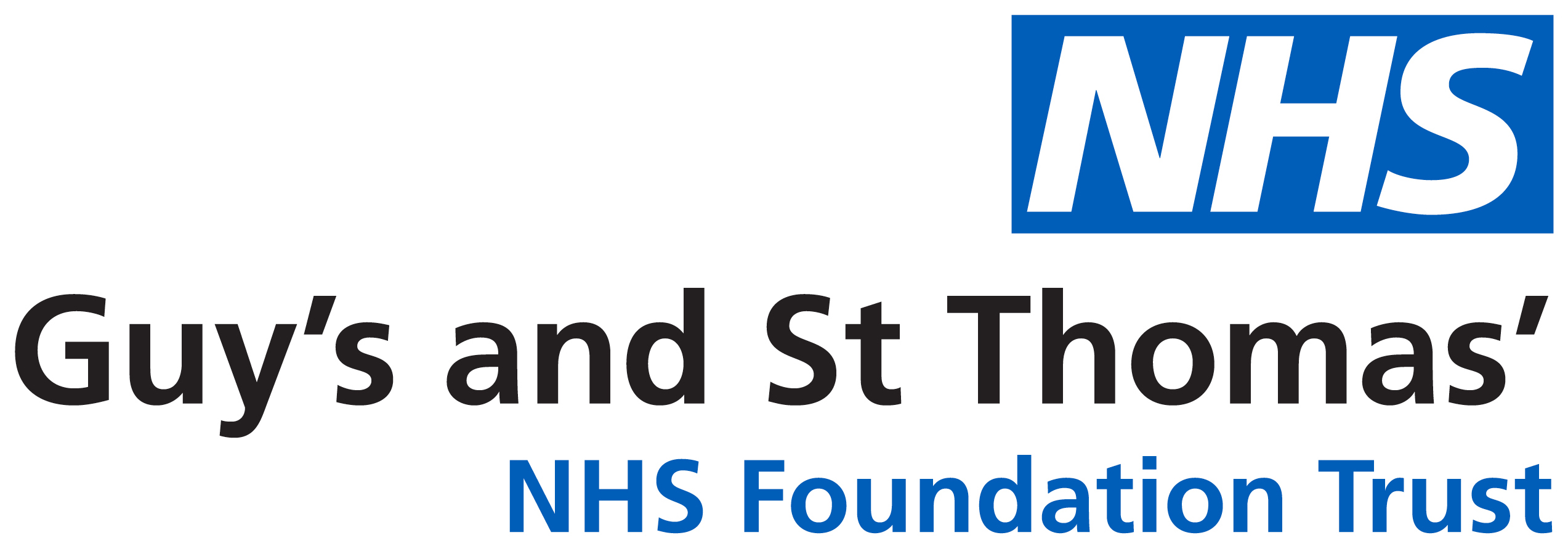Welcome to Guy’s and St Thomas’ for Kings Health Partners Anaesthesia Specialty Training Programme.
Anaesthetics are given by specially trained doctors called anaesthetists. The anaesthetist is responsible for your wellbeing and safety throughout your surgery and will plan your type of anaesthetic and pain control with you.
Anaesthesia South London (ASL) is committed to delivering excellence in training the next generation of anaesthetists. The training programme incorporates both South East (formerly called SESA) and South West (St George’s School of Anaesthesia) areas.
 This postgraduate specialty programme provides trainees with the skills, experience and training to prepare you for a career in Anaesthetics. This popular 7 year training programme leads to a Certificate of Completion of Training (CCT). CPD are awarded to a number of regional training days on this programme.
This postgraduate specialty programme provides trainees with the skills, experience and training to prepare you for a career in Anaesthetics. This popular 7 year training programme leads to a Certificate of Completion of Training (CCT). CPD are awarded to a number of regional training days on this programme.
This training programme includes:
- ST3 –ST4 Intermediate
- ST5-ST7 Higher
Rotations
ST3 Year
In ASL-SE the first year of intermediate training is spent working in a district general hospital in the region. Hospitals are located in South East London and Kent, these are:
- University Hospital Lewisham
- Princess Royal University Hospital, Bromley
- Queen Elizabeth Hospital, Woolwich
- Medway Maritime Hospital, Gillingham Kent
- Maidstone and Tunbridge Wells Hospital, Kent
ST4 Year
The second year is spent working in one of the tertiary referral hospitals in the area, which is either:
- Guy’s and St Thomas’ Hospitals
- King’s College Hospital
ST5 Year
ST5 year is typically spent in two district general hospitals (6 months each). During this time, you are expected to consolidate your knowledge and develop more independent practice through doing mentored solo lists. Overall you should expect about 20% supervised solo lists. The modules to aim to sign off during this time are the general duties modules usually done in most DGH:
- Day surgery
- Head, neck, maxillo-facial and dental
- General, urological and gynaecological surgery
- Management of respiratory and cardiac arrest
- Non-theatre
- Obstetrics
- Orthopaedic
- Regional
- Sedation
- Transfer medicine
- Trauma and stabilisation
- Vascular
ST6 Year
ST6 year is usually back to King’s or St Thomas’ Hospital to do the higher modules not done in DGH hospitals or modules requiring exposure to complex cases to ensure the desired level of experience is attained. This includes:
- Cardio-thoracic Anaesthesia (1-3 months)
- Paediatric Anaesthesia (1-3 months)
- Neuroanaesthesia (1-3 months)
- Obstetric Anaesthesia (1-3 months)
- Vascular Anaesthesia (20 sessions)
- Intensive care medicine (minimum 3 months)
ST7 Year
This is your advanced training/fellowship year. Most people will do their advanced training year in a subspeciality in ST6 or ST7 year (typically ST7).
You can choose to do two six month fellowships or a one year fellowship. The advantage of going to another country to do your fellowship year is an individual one and is mostly dependent on what subspeciality you choose and where you desire to work as a consultant. Working in another country however demonstrates an ability to be flexible and adaptable. Most trainees do it for the travel opportunity as well as for research and publication opportunities. It has to be stated that there are benefits to doing a fellowship locally. One major one is that working in the hospital where you hope to work in the future as a consultant allows you to build a local network of colleagues and familiarity with the department practice.
The options for advanced training modules include:
- Anaesthesia for neurosurgery, neuroradiology and neuro critical care
- Cardiothoracic anaesthesia and cardiothoracic critical care
- Airway management
- Head, neck, maxillo-facial and dental
- General, urological and gynaecological surgery
- Hepatobiliary surgery
- Vascular
- Day surgery
- Sedation and conscious sedation for dentistry
- Orthopaedic surgery
- Regional
- Trauma and stabilisation
- Transfer
- Intensive care medicine
- Obstetrics
- Paediatrics
- Paediatric intensive care medicine
- Pain medicine
- Plastic/burns

The optional units
- Pain medicine
- Ophthalmic
- Plastics/Burns
- Conscious sedation in dentistry
The other optional units would usually require organizing time away in a developing country, with a humanitarian organisation or through the military.
Anaesthesia in developing countries
This can be organized through the RCOA international programs such as the Zambia Anaesthesia Development Project (ZADP- 6 months), Mercyship fellowship (3 months), Facing Africa Fellowship (2 weeks).
Military anaesthesia
To complete this unit, you will need to contact the program director especially if you are not already a military personnel to organise. Academic opportunities can be found on the NIAA website.
Remote and rural anaesthesia
This can be achieved through the Careflight Fellowship. Alternatively contact the program director to pre-approve an individually organized programme.
To apply, visit the London Postgraduate Medical and Dental Education website.
All of our Lead Provider trainees have access to a host of Professional Development opportunities. For more information on our Professional Development courses please visit the School of Improvement section in courses and events.
Trainees rotations are based at two world class teaching institutions: Guys & St Thomas Hospital and Kings College Hospital. Trainees will rotate to several of the highly regarded District General Hospital across South East including those in East Sussex and Kent.
- Princess Royal Hospital (PRUH) Kings College Hospital NHS
- Lewisham, Woolwich– Lewisham and Greenwich NHS Trust
- Medway
- Maidstone/Tunbridge Wells
- Queens Square
- East Grinstead
- Great Ormond Street
Contact Us
If you have any questions or would like further information please contact the Lead Provider team at [email protected]


